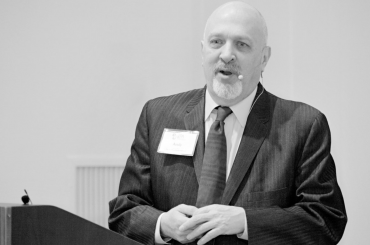It’s every mobile DJ’s nightmare, but suddenly Mike Mahoney realized he was not dreaming.
The father of a bride for whose reception he had recently performed was afterwards claiming to have been embarrassed by the way the DJ had introduced him. And the bride’s mother was concerned that he hadn’t played all the songs on their dinner playlist.
These are the types of responses mobile DJs sometimes receive when they request customer feedback—and sometimes even when such feedback has not even been requested.
We requested input from mobile DJs all over the country about how they’ve responded to customer concerns after an event.
How did they actually respond? How did the client respond in turn? And how did that customer feedback transform how the mobile DJ conducts his performances?
In Mahoney’s case above, the feedback he directly received from the parents of his particular bride caused him to change some things he now does for every event on his calendar.
“That earlier customer feedback I received was huge,” reports the owner of M&M Entertainment in Portland, Maine. “It led to me now contacting the parents two weeks prior to the event for every wedding I do, talking to them a bit about their toast, and reaffirming with them the relationship they have with their son or daughter.
“It really gives me the chance to ask them for their input on what they would like to hear for music.”
Mahoney says this topic is actually an important one, especially with the advent and popularity of online testimonials (“reviews”) on sites such as WeddingWire, The Knot, and Thumbtack.
“While testimonials certainly have their place as sales tools, real reviews are so much more helpful to me and my business from an operations perspective,” says Mahoney. “I still send a separate ‘How did I do?’ questionnaire, and ask them to be as candid as possible as the constructive criticism they offer will help our company grow. But I then send them links to The Knot and WeddingWire, with instructions to share their positive thoughts on our services at their wedding reception.
“Using this system, I retain the growth benefits of real reviews along with the promotional power of online testimonials, while improving the repertoire with my clients no matter how good or bad my review may be. While this doesn’t always work as planned, this system has helped my business tremendously.”
In another corner of the nation, Adam Tiegs of Adam’s DJ Service in Seattle, Wash., says he uses feedback a little differently as a solo-op than he previously did as a multi-op. Rather than keeping an eye on employees or a subcontractor, he’s now only monitoring his show performances.
Tiegs, however, is quick to admit that the feedback he receives from customers is not always legitimate.
“The only ‘negative’ review I’ve received in the past four years was complete BS,” he recalls, “and the only thing I learned from it was to be more cautious with certain clients—and especially those who rely on out-of-town family members to change the plans he made with his clients, without any communication, making him look like a fool on the wedding day.” (Not that he has a particular client in mind, of course.)
Tiegs continues: “I also learned that people can lie and essentially get away with it. But then again, having one negative review is OK, as it shows I’m human and things don’t always go perfectly.
“Besides that, I’ve had people say they saw the review, but nonetheless booked me because of the way I handled it, and because they are more likely to share feelings with my positive-reviewing clients, especially after meeting with me personally.”
When Steve Croce of Silver Sound DJs in Philadelphia first began entertaining for wedding receptions, he said he obsessively read DJ Times magazine, combing throughout every article to learn about lighting and audio, determined to invest time finding out as much as possible about dazzling sound and lighting effects.
“I would also consume as much as I could from every music chart I could find, determined to play the newest and hottest tracks,” he recalls. “The internet was still a baby bird, so the quest for information became an active compulsion. I was convinced that surging forward in technology and popular tracks was the key to becoming the very best DJ around.
“With the continuous stream of knowledge pointed at my eyes and brain, I carried myself as a confident and well-informed authority on DJing, doling out regurgitated information to anyone who would listen. It was a lot like being a fledgling member of a religion, consumed with proselytizing my newfound faith to the world. I had absolutely no idea—and wouldn’t realize until much later—that I was repelling everyone around me.”
When Croce once asked a reception hall server what she thought of his performance, she responded by saying, “I didn’t think you were any different than any other DJs that come here.”
Recalls Croce: “I was genuinely stunned. When I asked her to say more, she followed up with, ‘You had loud speakers and blinding lights. I didn’t recognize anything you played and thought I was going to have a seizure from your strobe lights.’
“In three years of DJing receptions, I had not even attended one myself, so I had been merely bringing a pre-manufactured show to every wedding. Sure, I was playing the special songs they requested for their entrance—the first dance, and the like— but once the cake was cut, it became The Really Awesome DJ Show.”
Croce says that this little bit of feedback completely changed how he approached each reception after that. He started asking his clients beforehand questions that no one was asking at the time—such as, ‘Where did the bride and groom meet?’
“I began to make a personal connection with each of my clients, long before the day of their wedding arrived. I started customizing their song choices more intimately and inspired the bride and groom to consider a unique entrance into the room or a way to recognize the grandparents who had been married for 70 years… to name a few.
“I believe when we stop deciding what people want—without ever asking—and begin to really listen to our clients, we not only unlock the potential for an outstanding party, but we roll out the red carpet to many future clients who may have never noticed the true difference our service might offer to them.
“I truly believe it was this difference that has kept me entertaining weddings for more than 23 years.”
According to Artem Lomaz of NinetyThree Entertainment in Roxbury, N.J., customer feedback is not only a valuable resource—as it provides an analysis of a DJ’s performance through another person’s eyes—but it also allows a DJ to collect a consensus.
“It’s really impossible to see yourself performing in the moment—even when reviewing event footage afterward,” says Lomaz. “So it’s always nice to get feedback from a variety of people, especially if they had different goals and expectations and mind.
“The expectations of your guests of honor—essentially your clients—will differ slightly from their guests. Thus, I find that I enjoy receiving feedback from not only the clients themselves, but also the immediate, in-the-moment feedback from guests.”
If everyone praises the results, despite different expectations, Lomaz says an entertainer can feel they’ve accomplished their goal—creating a celebration that makes everyone feel included.
“Personally, the best bit of customer feedback comes in the form of a post-event video testimonial,” he says. “It captures the clients’ initial reactions to the production, as well as it can include new phrases, words, or positions that you can utilize for marketing. Aspirational quotes or phrases from your clients can help shape your brand as you include them into your marketing.
“My team and I have been fortunate enough to be recognized by our clientele for our emphasis on personalization and in-depth, detail-oriented approach to celebrations. When searching for the best ways to express what you and your team have to offer, your clients’ feedback often has great insight as to how to position your brand.”
Back over in the Midwest, K.C. KoKoruz of The Keith Christopher Entertainment Group in Chicago says the biggest mistake that companies make is not asking for real customer feedback.
“In speaking with DJs across the country, I find that independent DJs tend to be the most guilty of not sending out service evaluations after their events,” says KoKoruz. “When I ask them about that fact, they simply explain that they were at the event, so they know how it went.
“I’ve tried to explain to them that I understand that view, but the client may have a different opinion on the services they provided. The DJ, of course, thinks they rocked the wedding, while the client may have wished that the DJ was a little louder or quieter during the evening—but was too consumed in enjoying their reception to say anything that night.”
A good evaluation request, according to KoKoruz, should ask more than if the DJ had showed up on time, or if the DJ was pleasant and friendly.
“Here are some questions that I seldom see on a DJ’s evaluation form, but should be included: ‘How were the MCing skills of the DJ/MC?’ Or ‘Did the DJ create moments that they will look fondly back on for years to come?’ Or ‘Was the DJ available to them easily throughout the planning process?’
“There’s a large difference. People may have had a great time, but the DJ was a not-so-amazing MC. Did the MC create a loving moment that stopped everyone from doing anything other than watching the bride and groom share their first dance? Or did they simply make the same generic announcement about the bride and groom’s first dance?
“If you want changes to better your client experience, you have to ask for actual critical feedback and not only for praise.”
Having been a mobile jock since 1974, Ray Martinez of Ray Mar Productions in Goodyear, Ariz., says that customer feedback is extremely important for DJs who wish to keep their business going for decades.
“You have to have thick skin in order to receive client comments,” he says, “especially if they’re offering constructive criticism, but I believe that advice always help you improve in the long run.”
Martinez says he has over 230 reviews posted on WeddingWire and The Knot, but the one review that was negative was one that almost caused him to quit the business.
“In her review, the bride had typed in all caps, demonstrating she was not very happy with me, and she wrote things that were not true, which really hurt me professionally,” he says. “Because I take personal pride and responsibility for my work and actions, I took it very personally, and I almost made the decision to retire from the industry.
“I read the review to my fellow DJs and, thanks to the great advice from my trusted colleagues, they convinced me not to let one performance talk me into retirement. And the great part about this story is I viewed the photos from the reception, which showed everyone on the dancefloor—including the priest from the church.”
Martinez’s DJ friends automatically read right through this bride, and knew that what she wrote was a total fabrication of the facts of what actually happened that evening.
“I’ve always believed that you cannot be responsible for what other people say, do or think,” he says. “You can only be responsible and be held accountable for your own actions.”
After 43 years of experience, the best advice Martinez offers DJs is to read every card, letter, e-mail and review they receive.
“If you know you did your very best that performance and can lay your head on your pillow that night with the highest integrity, you have nothing to worry about,” he says. “But, if at your performance, you merely went through the motions and as a result received less than stellar reviews or complaints, then it’s time to make some changes to your business and attitude of how you work.”








